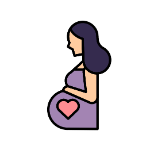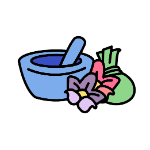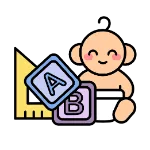
Childcare
What Your Baby Poops Say About Their Health
6 min | Updated on 30-03-2023 by HappyPreggie
(Image credits to BellyBelly)
Baby poop is probably something you had expected to deal with once your baby is born, but did anyone tell you how varied the contents of their diapers can be? Runny or firm, black, green, or yellow, and there can even be mucus in their poop. Those diaper changes will be a regular part of your daily routine as a parent, but they can also indicate your baby's well-being. Learn more about the colour, consistency, and frequency of your baby's poop and how it can tell you about their health and development.
Your Baby’s Poop — What’s Normal?
Before starting, you'll want to know what healthy baby poop should look like. This is because the colour and consistency change over time, depending on various factors, especially what your baby is eating.
Below is a rough guideline of what you’ll likely see in your little one’s diapers over their first few days, weeks and months.
Meconium
Your baby's first few diapers will likely contain a gooey, dark green, tar-like substance with little to no smell. This is called meconium, a distinct type of poop made up of mucus, skin cells, lanugo hairs, and other particles your baby swallowed, along with the amniotic fluid, while in the womb.It may take a few days for your baby to pass all the meconium out of their system, but as soon as it happens, they'll start having regular baby poops. The colour will shift from almost black to yellowish green, and there may be less mucus. However, you'll want to speak to a doctor if your baby's first bowel movement doesn't happen within the first 24 hours after birth.
Regular Baby Poop
Once the meconium is out of your baby’s system, they’ll start having regular poops, but it can vary depending on how they’re being fed.- Breastfeeding Babies
- Formula-fed Babies
- Babies In The Weaning Stage
If your little one is eating finger foods, you may see undigested bits of foods like the skins of peas or tomatoes, which is normal. This is because their digestive system is still getting the hang of processing all the new foods. The weaning period is also when your baby's poop will have a stronger smell due to the extra fats and sugars in their diet.
What the Colors of Baby Poop May Mean
(Image credits to MacKoul Paediatrics)
You might be surprised by the colour changes, ranging from mustardy hues of breastmilk poop and the yellow-tan of formula-fed poop to various other shades of yellow, brown and even green. You may even find mucus, which creates a translucent or milky colouring in your baby's poop.
Green Baby Poop
Green-coloured poop can cause concern the first time you see it, but it's usually harmless. Many factors can cause it, from certain medicines taken by your baby or by you if you're breastfeeding to green foods eaten by your baby directly or passed on through your breast milk. Sometimes, what you see in their poop is simply a product of their normal digestion.All earth tones-coloured poops are generally harmless but don’t hesitate to reach out to your doctor if you have questions or need reassurance.
Warning Colours
Certain colours of stool can indicate a possible health issue. You’ll want to check with your baby’s doctor if your baby’s poop is in any of the following colours:- Red
- Black
- White or Gray
Mucus in Baby Poop
As mentioned earlier, mucus in baby poop is often harmless and normal. Meconium almost always has it and it’s not uncommon to find small traces of mucus in their poop as they grow older and eat various foods.However, suppose mucus in baby poop is accompanied by other symptoms like blood, diarrhoea, high fever, loss of appetite, vomiting and weakness. In that case, this could indicate an infection or digestive issue. If you notice any of the symptoms above alongside mucus, you'll want to reach out to your baby's doctor.
How Often Will Your Baby Poop?
The frequency of your baby’s poop will change as they grow and their digestive system develops, but it can also be affected by the feeding method you practise.
If You’re Breastfeeding
If your baby is being breastfed, they’re likely to poop more frequently than formula-fed babies. Using the rule of thumb, your baby may have between 2 and 5 bowel movements a day until they reach 6 weeks old.After they reach 3 to 6 weeks, your baby might go several days between their bowel movement. This is because their digestive system can efficiently process breastmilk and thus leaving very little solid waste.
After 6 weeks, your baby may have fewer daily poop as your breastmilk no longer contains colostrum, which acts as a laxative.
If You’re Formula Feeding
If your little one is getting all or most of their daily nutrition through formula feeding, they may start filling their diapers at least once a day after the first few days of formula feeding. However, it’s not abnormal for them to go a day or two without bowel movement sometimes. If their stools are soft when they materialise, then you have nothing to worry about.If you’re concerned with the frequency of their poops, consult your baby’s doctor for deeper insight.
Can Your Baby Make Too Much Poop?
(Image credits to South China Morning Post)
The amount of poop your baby passes daily can vary, but as long as their weight gain is on track and their stools are soft, it’s nothing to concern yourself about.
If their poop seems watery or is filled with mucus and they’re pooping more frequently than usual and has other symptoms like a high temperature, this could be because of diarrhoea. Reach out to your baby’s doctor if you think your little one is having diarrhoea, especially if they're under 3 months old.
It's worth noting that newborns and younger babies are more likely to produce lots of little poops one after the other. If you notice that your baby just had a bowel movement, you can save an extra diaper change by waiting a little longer in case there's more to come.
When There’s No Poop — Constipation
With all the variation in the frequency of your baby poops, you may wonder how you can tell if your little one is constipated.
Constipation in babies is more common after introducing solids, but it can also occur in younger babies. Some typical signs of constipation include:
- In newborn babies: Firm stools that come less than once a day
- In older babies or toddlers: Hard, compact stools that come every three or four days
- In babies or children of any age: Large, hard and dry stools that are painful to pass; blood in their stools, straining for more than 10 minutes without passing any stool at all.
What Can You Do About Constipation?
If you think your baby is constipated, reach out to a doctor for advice. Refrain from giving your baby any medication, including a laxative, unless it’s specifically prescribed by the doctor. You’ll want to call the doctor if your baby doesn’t get better or has other symptoms like:
- Vomiting
- Fever
- Lethargy
- Loss of appetite
- Blood in the stool
How to Tell if Your Baby Has Pooped
(Image credits to Parents)
Your baby’s poop may not always smell strongly, especially in the first few weeks. So, how can you tell when they need a diaper change?
One strongest tell-tale sign is straining because passing a stool is harder to do for small babies. You may notice your little one's face getting red while pushing out poop.
Once they're old enough to stand and walk, you'll notice the squatting pose they adapt when having a bowel movement.
Check out our related blogs here: Top 10 Diapers In Malaysia To Keep Your Baby Dry In 2022, 10 Best Nappy Rash Creams In Malaysia To Keep Your Little One At Ease In 2022 and Best Baby Wipes For Newborn In Malaysia 2022.
Join the largest support network for family health and well-being. Ready to get started?
Get started
















